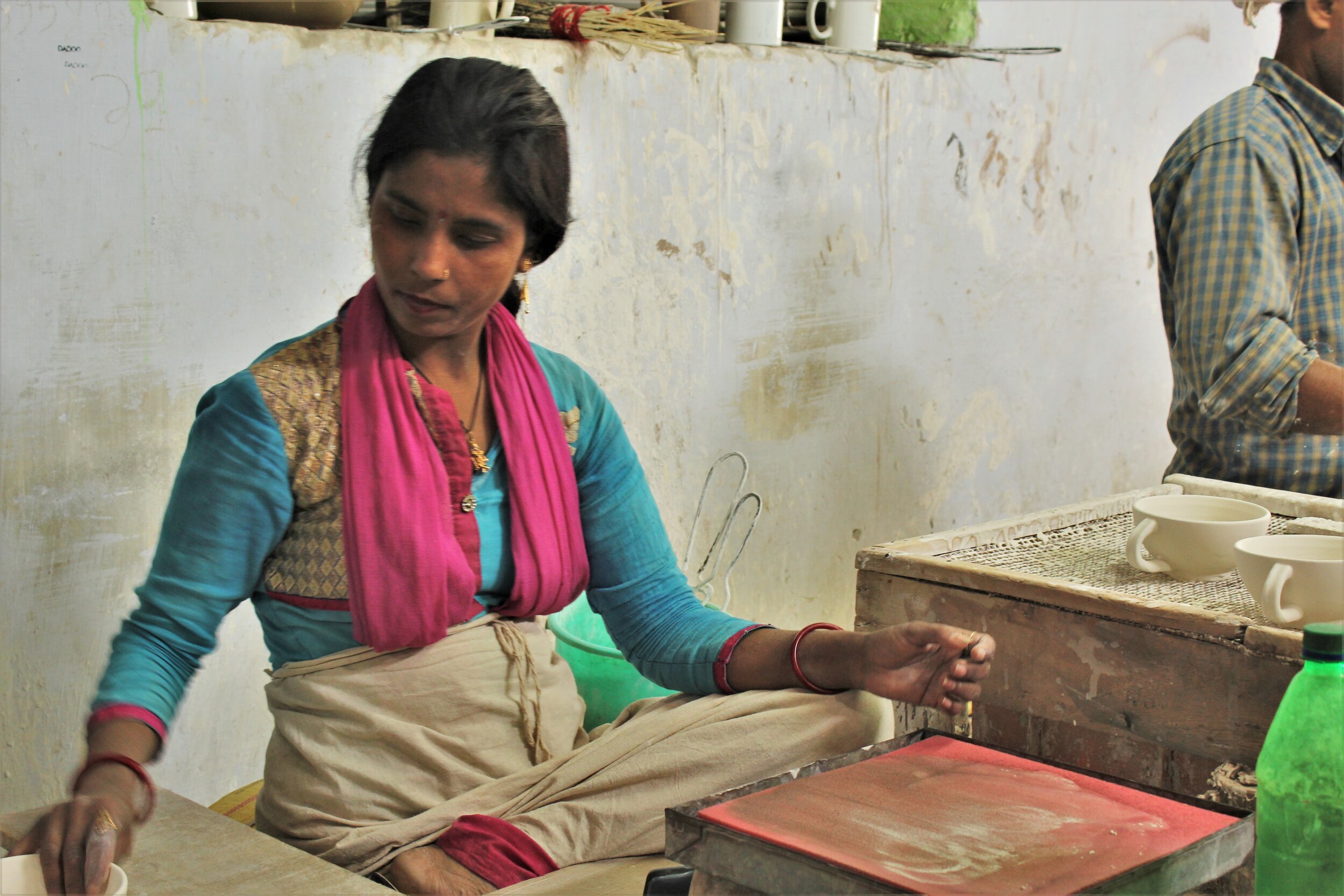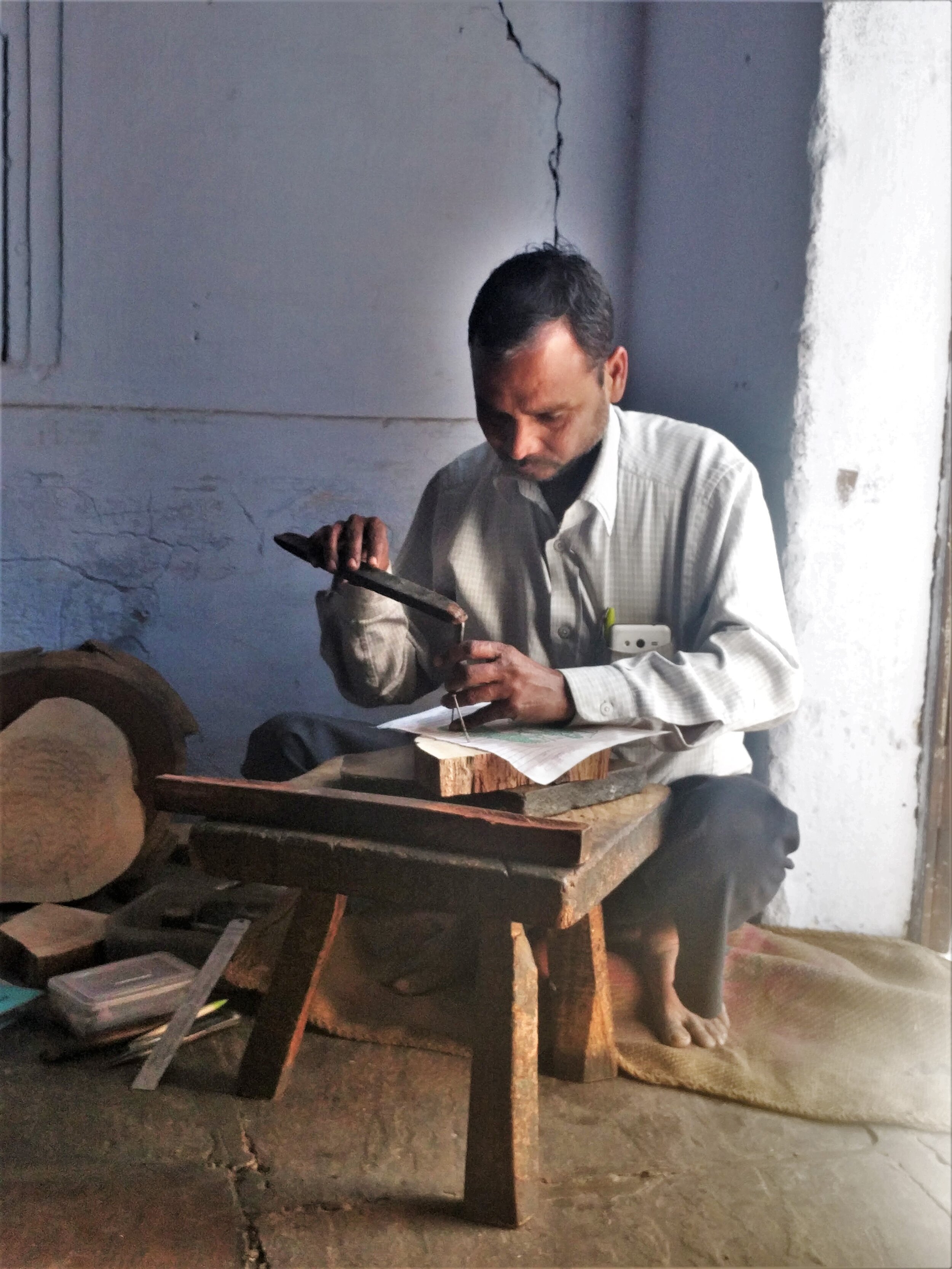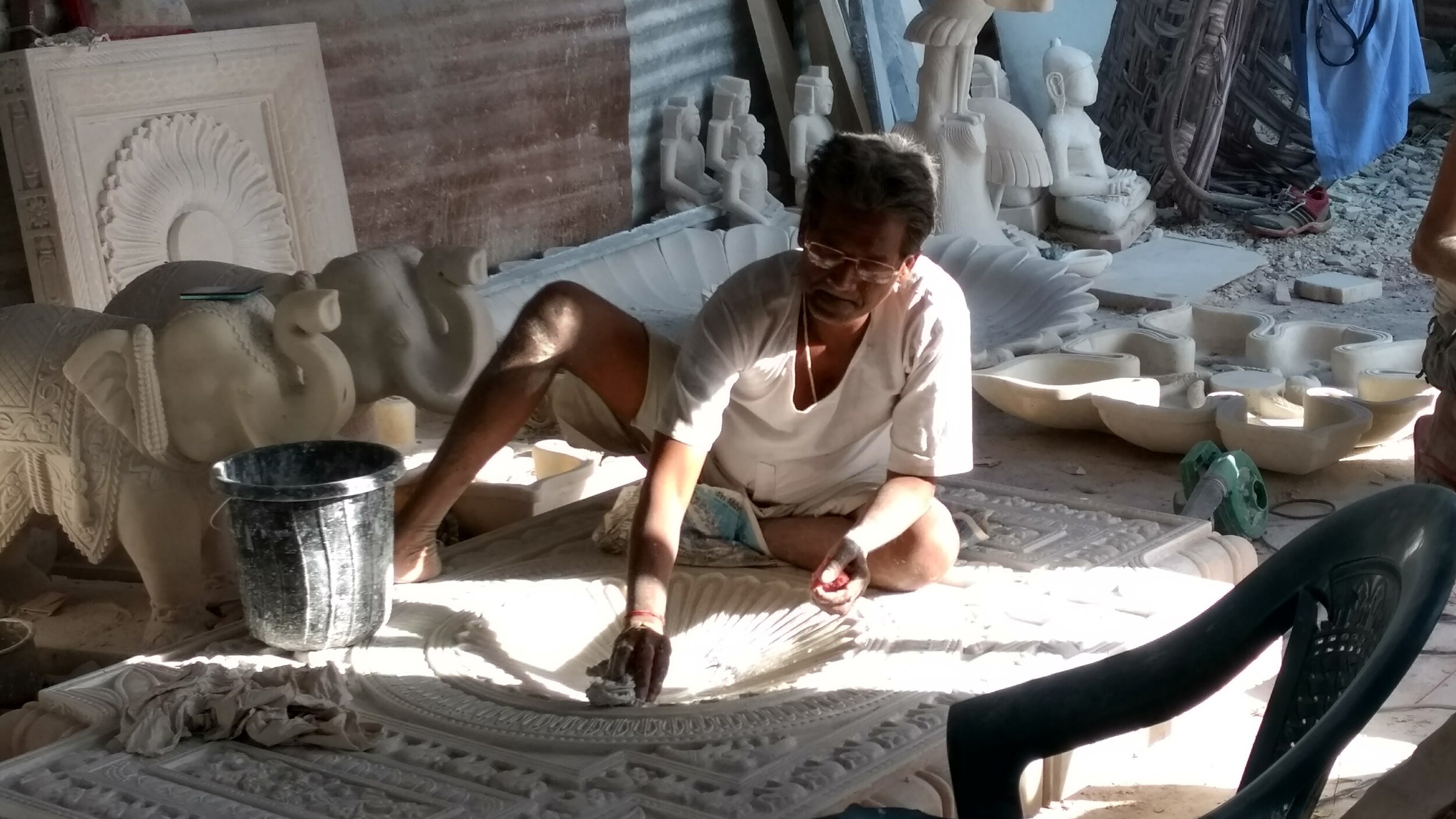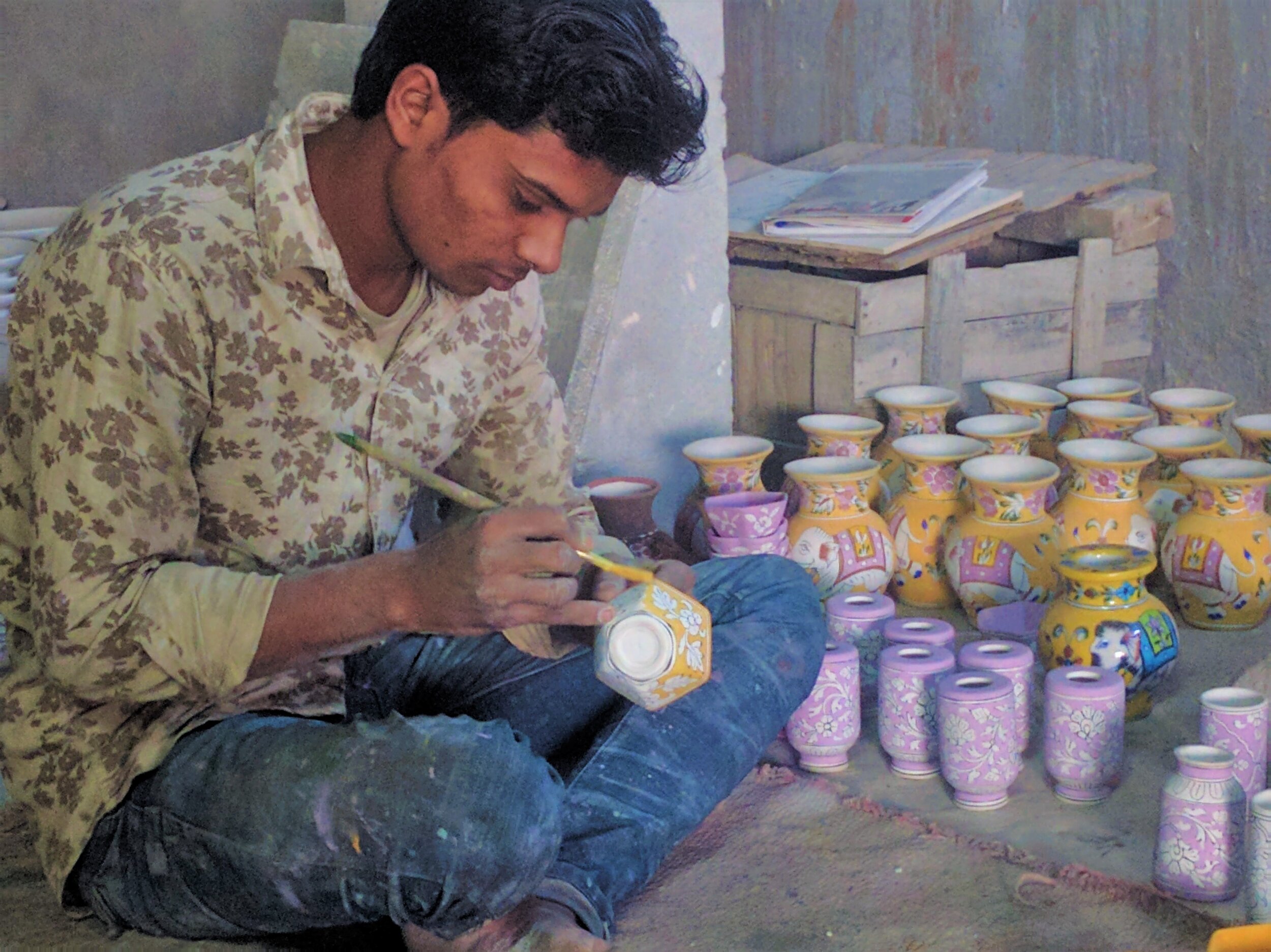Shineel and Varun, Founders of The House of Artisans (THOA)
Shineel, Founder of The House of Artisans (THOA) has always been interested in creating things by hand, a trait she inherited from her mother. In turn, she strives to learn the origins and people involved in creating nearly every product she comes across. Perhaps that’s why, when she learned how little many of the talented artisans in India earn for their handcrafted products, she knew she wanted to help create better opportunities for them.
THOA was started in 2018 with the vision to support 10,000 artisans in 10 years, an ambitious but inspiring goal. A premium brand of all things sustainably handmade, THOA takes pride in working with artisans to create products that are unique, eccentric, and imperfect.
Having improved the lives of 20 families to date, Shineel is driven to help more and more families as the company expands, improving incomes for people in some of India’s most marginalized communities.
THOA is one of the startups participating in Upaya’s 2020 Accelerator Program designed to help early-stage businesses prepare to grow and create jobs that lift marginalized communities out of extreme poverty. We are pleased to introduce Shineel and her vision for THOA through our Entrepreneur Spotlight Q&A!
Q: What inspired you to start your company?
“Well, it actually started with an accident. I was looking to have some unique packaging made, but since I needed only a few pieces, none of the middlemen were willing to take the effort. And me being me, I wasn’t going to stop. So, I found the people who would make it with their hands, this time, without the middlemen!
My interactions with these artisans are what led to the birth of ‘The House of Artisans.’
I realized the challenges the artisans faced and discovered that the creators of the most beautiful products in the world had no idea how much their work was valued in the outside world. And of course, they were not being paid a fair price for their efforts and hard work. For a wooden hand-carved elephant – a signature Indian handicraft that was selling at Airport stores for Rs 3000 - Rs 3500 – the artisan was getting paid as little as Rs 22 per piece.
Our country is known around the world for its handwork and customers are very happy to pay a premium for the effort it takes to make things by hand, but somehow the artisan who makes it has nothing to do with it! I felt something in my stomach, the need to do something about it, to make their work reach to people directly and giving them more respect in terms of money and recognition!”
Q: How did you become so passionate about the artisan handicraft industry?
“I have always been passionate about a few things from my childhood. Firstly, all things done by hand! It’s probably because my mom has been in love with design and craft for as long as I can remember, my childhood was full of one workshop after another – from painting to calligraphy, cooking, baking, making candles, playing musical instruments. First learning, and then teaching; it’s hard for me to keep something I have learned to myself
I have also always been crazy about finding the source of anything I consume. I want to know more behind everything: is it sustainable, what are the ingredients, the efforts, and most importantly the stories!
Finally, sitting with the artisans, watching them create magic with a chisel and hammer, and realising how little they were paid. That was really the seed of THOA, when I explored this more and conducted my research visiting more artisans across India. I knew what I wanted to do.
THOA is in a way a sum of all the things that move me, consistently. The trigger though was my meeting with the artisans”
Q: What have been your greatest accomplishments to date?
“We started THOA with 12,000 rupees and reached Rs 12 lacs in a matter of six months. That was our first achievement. It was more emotional than anything else then! It was how great it made us feel! From a business point of view, it was a clear show that we hit the right spot of identifying of our customer needs, understood the market – in short, our direction was right!
Having celebrities like Hrithik Roshan, Vidya Balan, Kirti Kulhari, Kriti Sanon, Harbhajan Singh, and Suresh Raina on board to support 200 artisan families during COVID 19 has been massive! When nothing was moving around the world, we moved 12 celebrities, 20 influencers, and 40 designers to a movement that we are so passionate about!”
Q: What has been your biggest learnings till date? (as an entrepreneur or of the sector in general).
“Building Relationships is key. Our artisans are used to working with middlemen who will pay them rock bottom prices and give them bulk orders! To convince them that they deserve a better life is very easy but making them believe that they will actually have one takes more time. Our employees give their best when they are driven by a purpose, are doing what they love to do, and have the opportunities to push themselves, but all of that will be possible only when they believe in you!
There are no rules. Every business is unique and needs to be treated like that. What worked for someone else in the same industry at the same time will not work for you! So, make your own rules – rules that work for your business. Do not be blinded by what everyone else is doing!
The first question any entrepreneur should be asking themselves is “why” are they into business? For me I realized I’m here to build an empire by empowering millions of people!”
Q: What has been your biggest challenge so far?
“When I started out, not a single person really believed in me, not my family or my friends. They respected my passion and work ethic as a person. But no one really believed that this would be a success. At one point, I had a total 12000 rupees in my bank account, a clear vision but loads of hurdles and challenges.
At that moment, when everyone I knew suggested that I should go back to the corporate world, I decided not to, and that’s when I received my biggest order till then which gave us a strong base for us to grow
No capital, and no emotional support from others were not the only things. I was working with artisans directly, cutting out middle men who used to govern the industry only with intimidation and local influence. It did ruffle a few feathers. At one point, I was intimidated and pressurized to drop this by the local middlemen. It was difficult to confront this in a patriarchal society like in most parts of India.
It took some doing, but when the makers understood how they were being exploited by middle men and that we had genuine long-term intentions and goals. Things started getting into place.”
Q: What is your vision for your company? What is your vision for India or the world at large?
“THOA’s vision is “to inspire every single person to celebrate who they are with all their imperfections.” We see that translating into the next generation of artisans being proud of their heritage and choosing to practice their craft as a profession and not look at it as a thing they need to grow out of.
The artisans are the second biggest workforce of our country. The impact we can create by ensuring that the artisans create high quality, high value produce and by mastering the market is massive. Is it possible, we believe it is!
Our country’s prosperity is directly linked to the prosperity of its people.
We want to support 10000 artisans in 10 years, and we have been able to impact 20 families till now. All our business plans are around how we can impact more and more families!”
What advice would you give to other entrepreneurs entering the space?
“There is no dearth of supply in our country, the demand however is always a competitive space. Know your niche and know your focus.
Talk to people who have done this before. I am sure that most of them will not say no… You have nothing to lose.
Finally, Believe, Believe, Believe. Assume that at some point people will give up or lose confidence in you becoming successful. There will be times you might question if your work really creates an impact or if you will succeed at what you are building. Be crazy about your beliefs, and believe that you will make it work, eventually.”


















The Tribal Hermit is a social impact venture that works closely with 130+ Dhokra craft artisans from Kondagaon, Bastar, and Raigarh districts of Chhattisgarh to design, create, and sell their products.